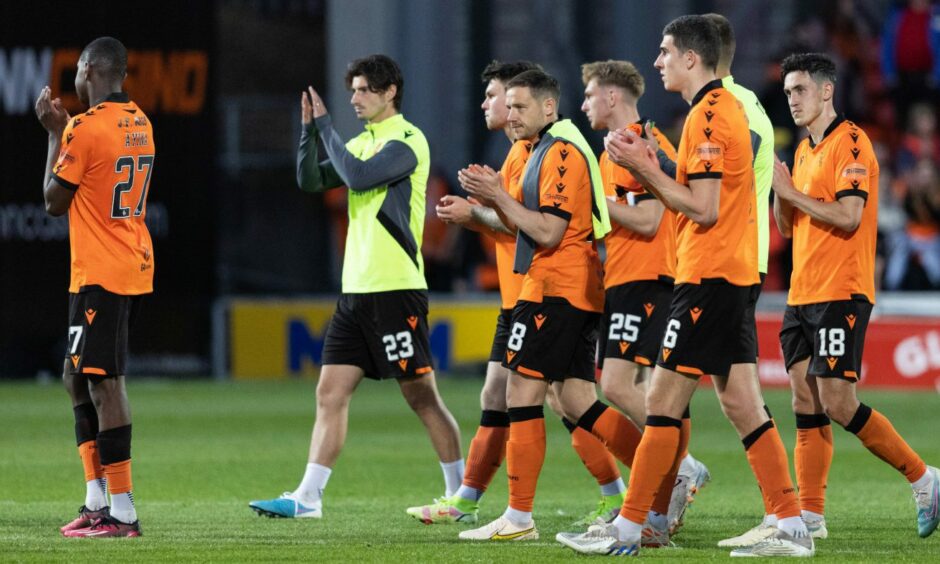
Dundee United’s woeful 3-0 defeat against Kilmarnock last week was wretchedly fitting.
The capitulation that saw the Tangerines all but relegated to the Championship was their campaign in microcosm.
A team selection hamstrung by recruitment failings; a rookie goalkeeper, two kids at centre-half and Steven Fletcher rolled off the treatment table to lead the attack due to a dearth of senior deputies.
We saw the almost obligatory — yet utterly inexplicable — defensive lapses.
The lack of guts and gumption when the contest became scrappy.
And there was the bumper, loud, colourful crowd, once again let down. Just as they were against Ross County seven days prior and when St Johnstone visited on a day celebrating the Premier Division winning heroes of 1983.
Defeat against Motherwell on Sunday merely rubber-stamped the inevitable and Dundee United were relegated.
But how did it come to this?
Courier Sport tells the inside story of a disastrous season.
Recruitment woes
United were not without a strategy last summer.
It was to be more expansive; to build upon the functional success of the previous two campaigns and create a more attacking outfit.
In doing so, the baby was lobbed out with the bath water.
Some fine footballers were signed. While hindsight is 20:20, few supporters were complaining about the captures of Steven Fletcher, Aziz Behich, Dylan Levitt, Jamie McGrath and even Mark Birighitti.
That was especially true after a stirring, unforgettable 1-0 win at home to eventual Europa Conference League semi-finalists, AZ. The Jack Ross revolution looked promising.
However, many onlookers did question a lack of depth and balance.
Allowing Nicky Clark and, later, Tony Watt (a combined 235 senior goals) to depart without adequate backup was foolhardy.
Sadat Anaku, Rory MacLeod and Middleton may be decent players, but the first two have never found the net at senior level and the third is not a striker.
When Fletcher was ruled out for United’s recent trip to Livingston, it was not some cruel twist of fate. It was a cast-iron inevitability. Knocks, niggles and suspensions happen.
Craig Sibbald has been asked to play like Patrick Vieira in the absence of a more natural destroying midfield influence. He has ably and diligently carried out his duties — he can hold his head high — but is no Calum Butcher or Jeando Fuchs.
It also took until the last day of the January transfer window for them to sign a swift, right-sided centre-back, Loick Ayina.
And the less said about their marquee capture between the sticks, Birighitti, the better.
A liability for the majority of the campaign, he has now been picked, then dropped, by three different managers in one season.
Fletcher, perhaps able to speak more freely now the futile fight for survival is over, lamented a lack of “nastiness” in the squad. Goodwin said they were nice. Never has a compliment felt quite so damning.
Tumultuous Tony Asghar
Asghar’s name looms large over this season.
In the interests of fairness, he would dispute the notion that he unilaterally ran the show at United — speaking of collaborative decisions and a team effort.
Other sources within Tannadice, at almost every level, described him as the person in control; Ogren’s right-hand man and most trusted confidante.
As such, he deserves to take a slice of the credit for much of United’s progress in the prior four seasons. And he must face the slings and arrows of criticism following the dire campaign we have just witnessed.
The failure to protect United’s right to compensation following Lewis Neilson’s move to Hearts last summer prompted fierce criticism; the starting pistol for a testing eight-month spell for the erstwhile sporting director.
When the club last addressed that matter, it was under appeal — however, Courier Sport has learned the original SPFL tribunal verdict was firm in its judgement that United failed to follow established protocols in Scottish football.
Asghar and Hearts director of football Joe Savage would go on to have a rather unbecoming confrontation in the Tynecastle directors’ box following the Tangerines’ 4-1 defeat against the Jambos on August 14.
It already felt like the Ross reign was unravelling.
Ross was in charge for five league matches.
We will never know whether the lilting United tanker would have turned around with him at the helm. As it is, he signed off on this squad and those initial results set the wheels in motion for a startling decline.
The ex Hibs and Sunderland gaffer — described by Asghar as “on a different level” just 10 weeks earlier — was dismissed on his way to training in the aftermath of a 9-0 defeat against Celtic.
Collective blame
But for too long, Asghar has been a human shield for those at Tannadice.
“Recruitment co-ordinator” Sean McGee, a former colleague of Asghar at Revolution Sports Global Consulting (now dissolved), cannot escape scrutiny for the club’s questionable transfer business.
Fletcher made the rather damning assertion that the squad were not fit enough prior to the arrival of Goodwin, prompting questions regarding the conditioning of first-team players at their St Andrew’s base.
And Mark Ogren, the owner and chairman. It would be patronising to absolve him of blame purely because of his laudable level of investment. He signs the cheques and is responsible for the fortunes of his business.
Courier Sport understands his visit to Scotland last November had a very different timbre to his previous trips.
As always, the Minnesotan businessman was civil and genial, but it was made clear, in the aftermath of his address to all departments, that spending was to be reined in across the board.
That would foreshadow a dismal January window. That is very much his prerogative. He has spent upwards of £13 million. However, the lack of activity ran the risk of a far more costly outcome for Dundee United: relegation.
It also makes rubber-stamping the capture of Arnaud Djoum on a two-year deal in October, when it was patently obvious that United needed either a goalkeeper, a defensive midfielder or another striker (preferably all three) seem bizarre.
None of which should take the spotlight away from the players; the players who capitulated with alarming regularity, produced a campaign littered with individual errors and whose performances saw two different managers sacked.
A January disaster-class
United are also not the only club to enter a transfer window having blown their budget. A risk vs reward calculation then must be made; weighing a potentially game-changing signing against the likelihood of relegation.
County brought in Eamonn Brophy, who would go on to score two goals against United, and Simon Murray, who later registered an assist against United.
Kilmarnock snapped up Kyle Vassell, who would go on to score three goals against United.
Watt was allowed to leave on loan to Premiership rivals St Mirren — with his parent club still paying a portion of his wages.
Allowing a disenchanted Watt to depart was not necessarily an error. But failing to sign a replacement and, in the event of injury or suspension to Fletcher, relying on a 17-year-old to salvage your Premiership status is diabolical decision-making.
“We are trying to sign targets who are potentially on a financial scale we can’t reach,” remains a perplexing defence by Asghar, to this day — and perhaps illustrative of a failure to grasp the severity of United’s plight.
Some within Tannadice were still assuring fans that they could attain top-six football when anxious Arabs were mapping their routes to Gayfield and Cappielow.
Carljohan Eriksson joined FC Nordsjælland on loan, leaving the club without an experienced back-up to the perpetually unconvincing Birighitti.
Courier Sport understands a move for ex-Hibernian goalkeeper Matt Macey was on the cards at one point. It didn’t happen.
United proceeded to put a deal in place to sign U.S. internationalist Bill Hamid in February. But when he arrived (Goodwin had replaced Fox by this point), Courier Sport understands he was a considerable distance away from match fitness.
That move was scrapped. Another farcical curio to this campaign.
A frenetic February
Ogren arrived for the club’s AGM amid persistent protests against Asghar and head coach Fox.
Speaking to shareholders, Ogren reaffirmed his complete faith in Asghar, emphasised that he could not keep sinking money into the club without return and suggested there would be no immediate personnel changes.
His response to the threat of relegation — seeking to assuage supporters’ fears over dropping into the Championship by stating that they could come straight back up — angered some fans, who felt he was minimising the threat.
Later that week, Ogren would attend a showing of Smile at the Dundee Rep and cut an awkward figure in the crowd during the subsequent Q&A session with Tannadice legends including Paul Hegarty, John Holt and Maurice Malpas.
He was visibly irked when one question inferred he had been glib about the danger of relegation.
Downing pints in The Snug Bar and being treated like a conquering hero must have seemed like another lifetime.
United lost 2-1 against St Johnstone in his presence. They were hammered 4-0 against Ross County in a game that saw — perhaps for the first time — travelling fans briefly cease chanting about Asghar and Fox, and turn their fury on Ogren.
Within days, Fox was gone. With a record of six wins in 21 games, his spell in charge was inglorious and a failed gamble.
Asghar followed; another seismic shift behind the scenes at Tannadice, and one that thrust chief executive Luigi Capuano into the spotlight — albeit he had been in that role for several months.
Capuano is another former Revolution Sports Global Consulting employee, serving as operations manager for four years before working for the Scottish FA, SPFL and UEFA in myriad roles.
His CV certainly stands up to scrutiny, but it would be naïve to ignore the section of wary Arabs — desperate for a fresh start — who are conscious of his long-standing professional ties to Asghar.
Building from the ashes at relegated Dundee United
Capuano held talks with Craig Levein regarding an emotional return to Tannadice.
It is understood Neil Lennon’s name was also suggested during a board meeting.
Talks with Levein were unsuccessful. He would later tell BBC Scotland he was not happy with the structure at Tannadice and broadcast his “suspicion” that Asghar was still involved with the club.
Goodwin ultimately got the gig.
And despite affording beleaguered Dundee United fans a little hope with a three-match winning run, familiar defensive failings reared their head and relegated United crashed to the Championship.
Even as Dundee United looked like being relegated, Goodwin has impressed players and the club’s hierarchy with his leadership, man-management and no-nonsense style.
He has quickly established what went wrong at the club and, following a campaign of platitudes, is refreshingly willing to acknowledge those errors.
Now comes the task of fixing them.
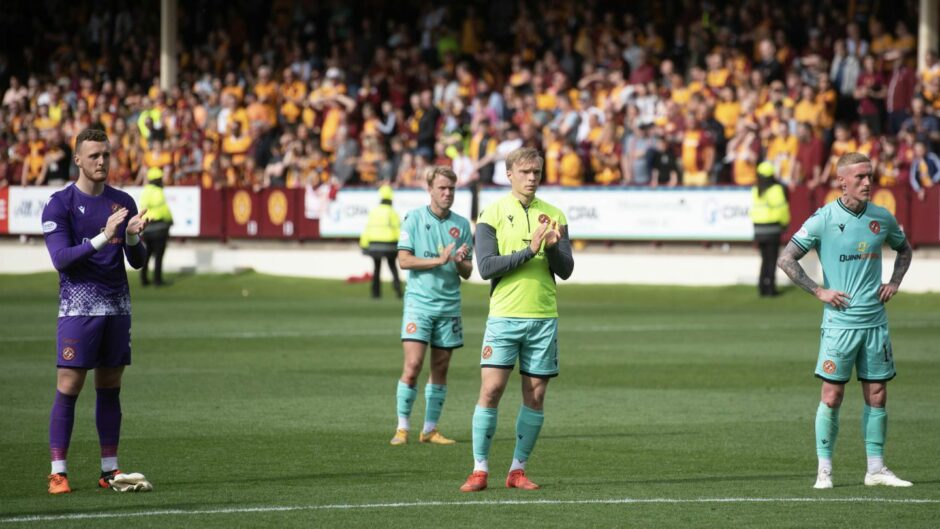
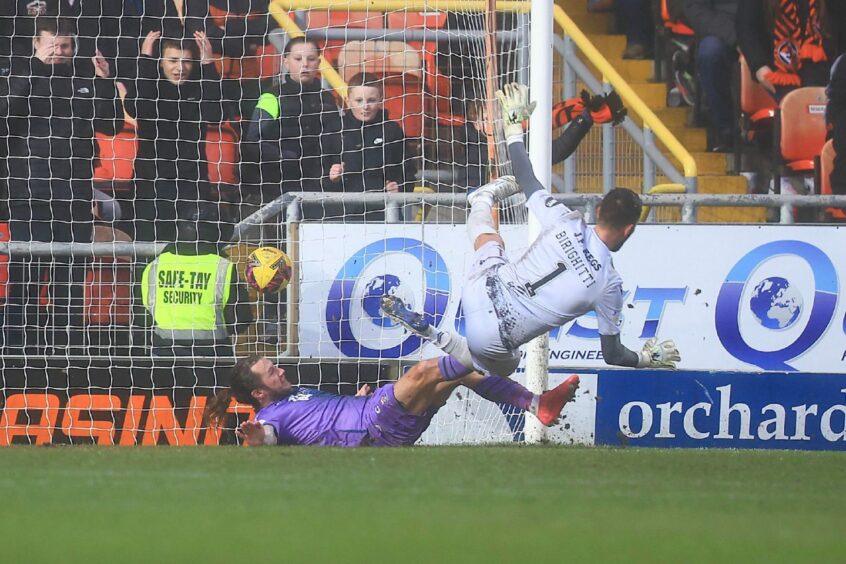
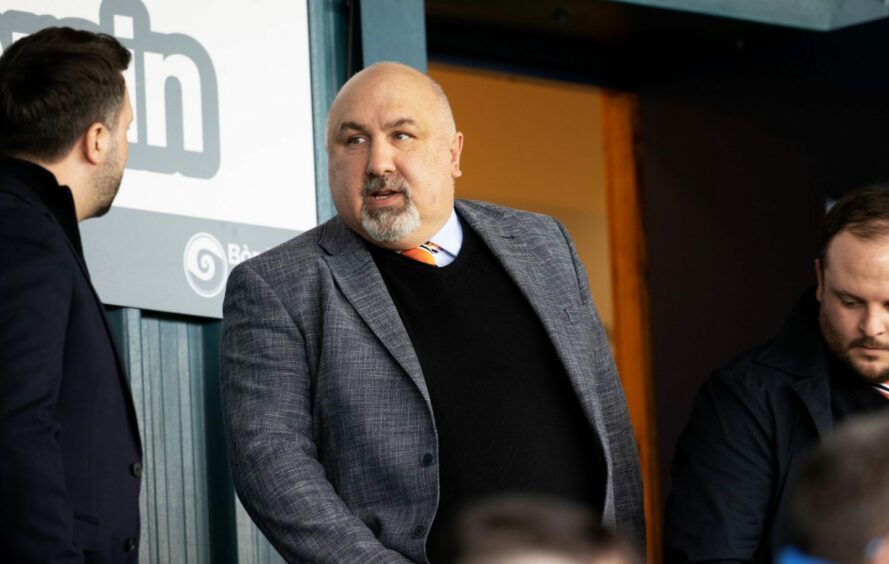
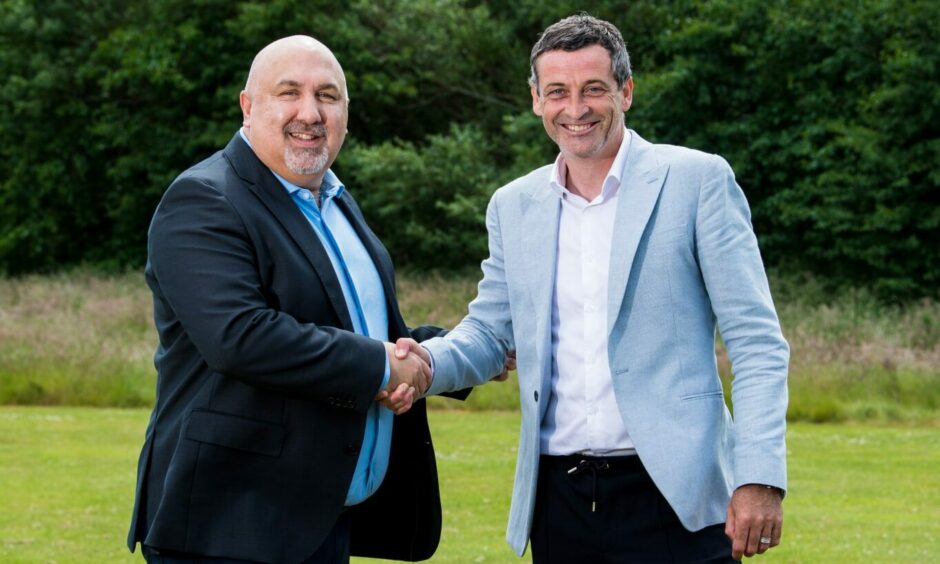
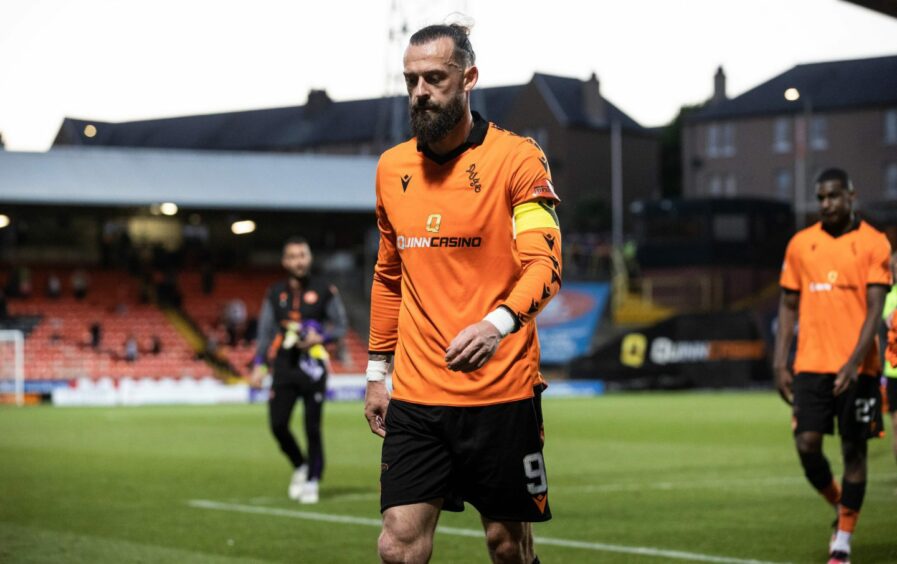
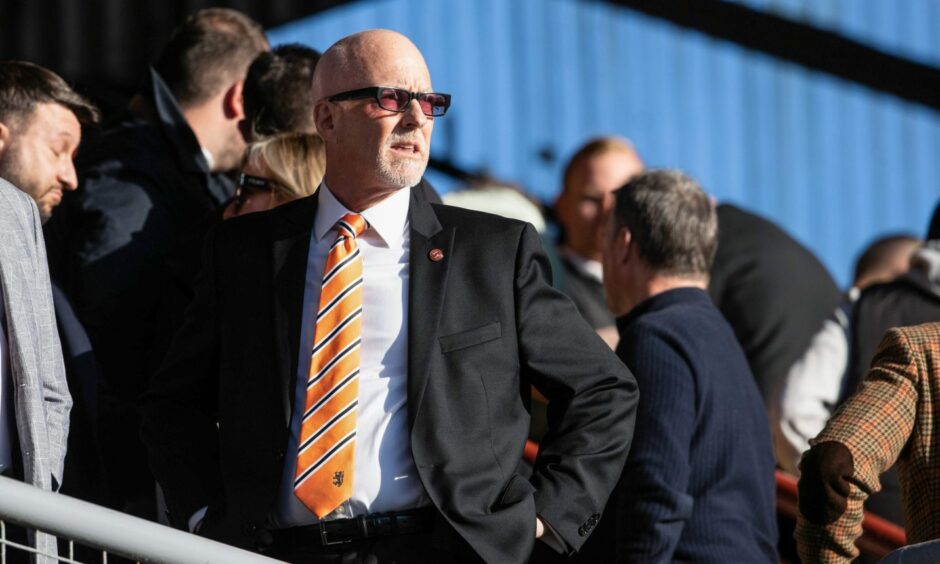
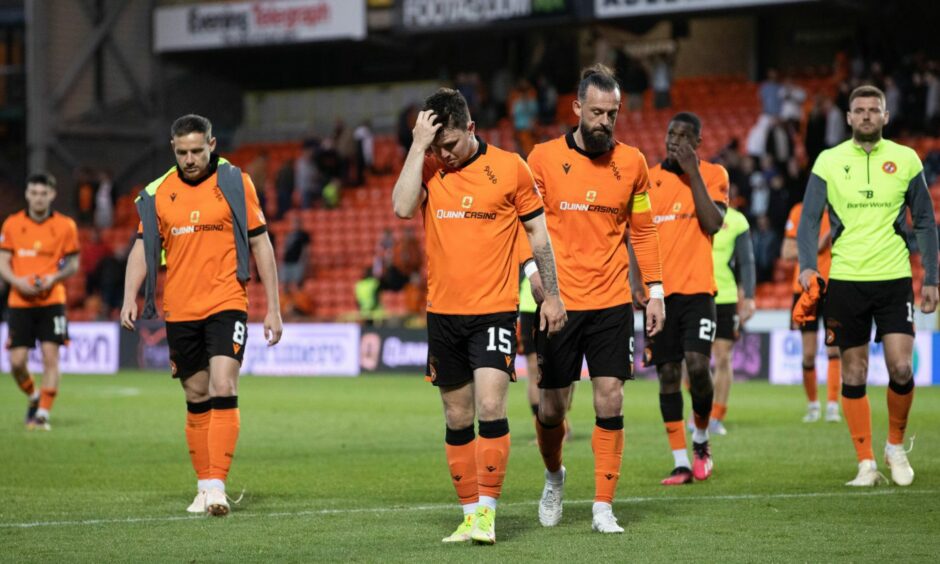
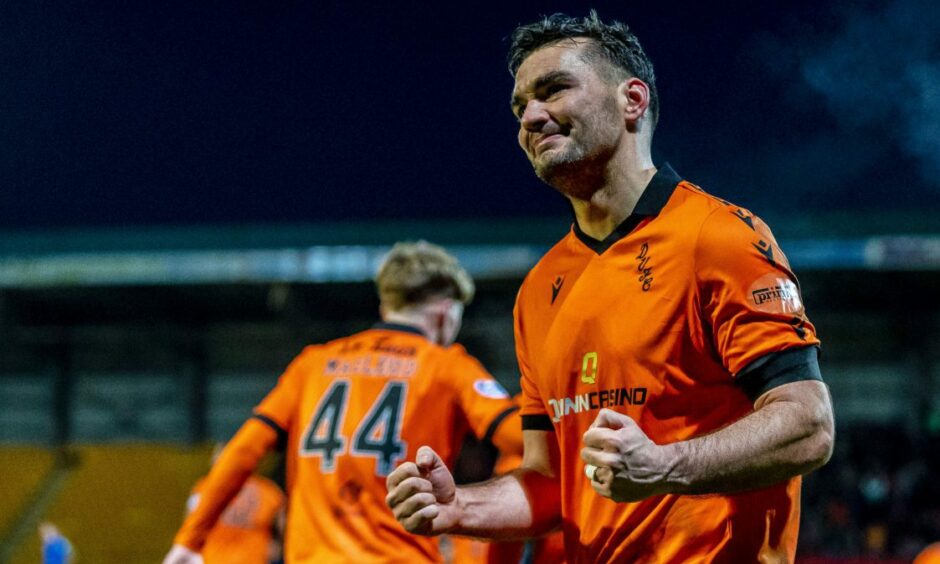

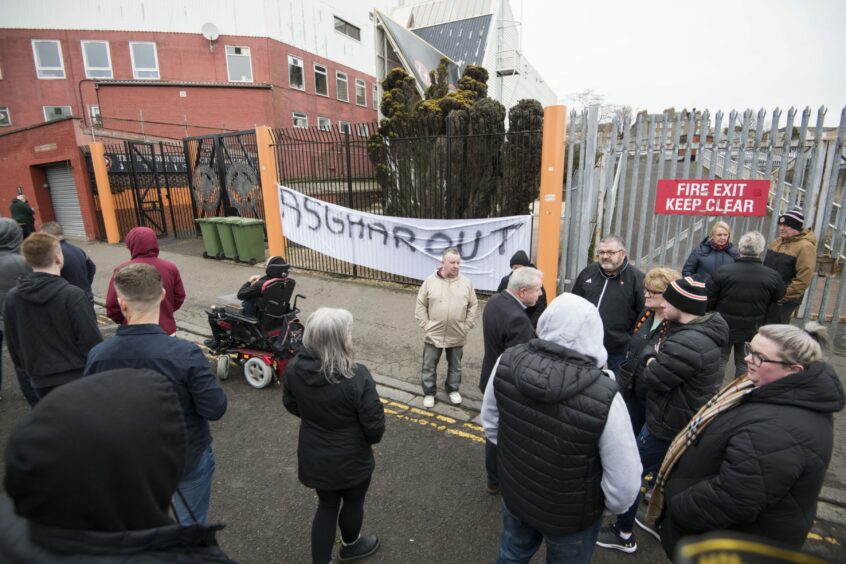
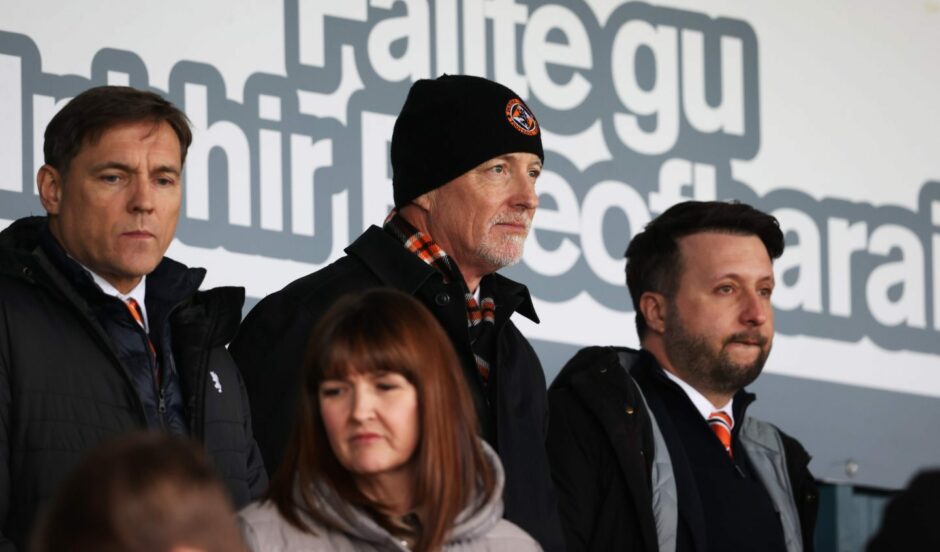
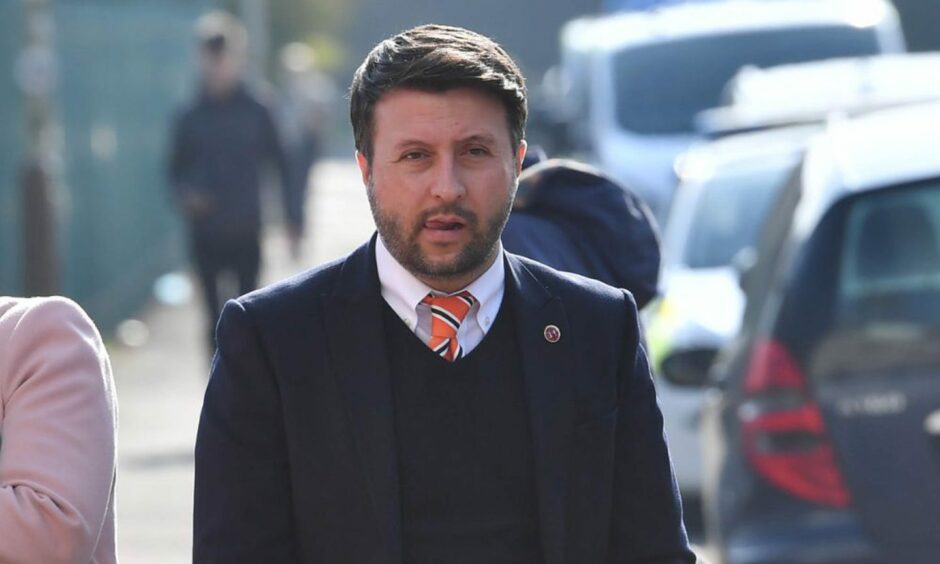
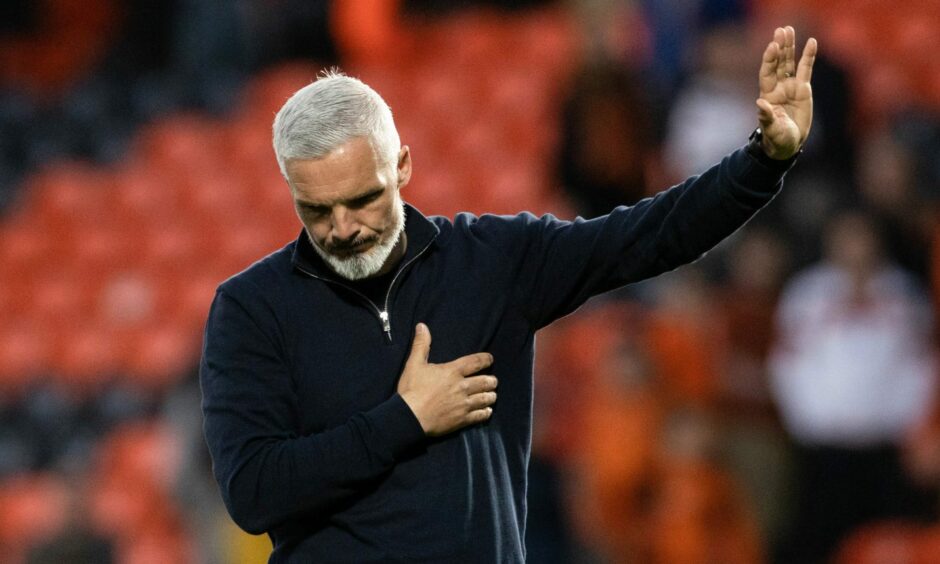
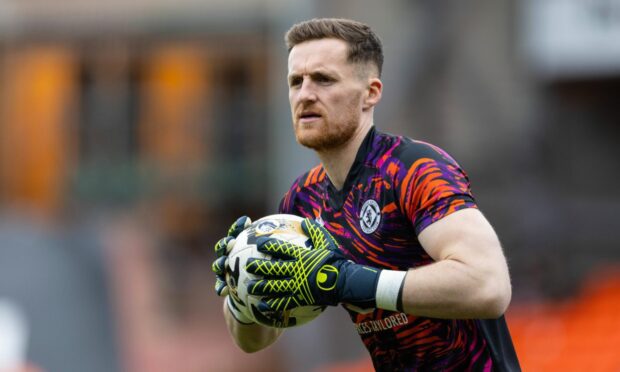
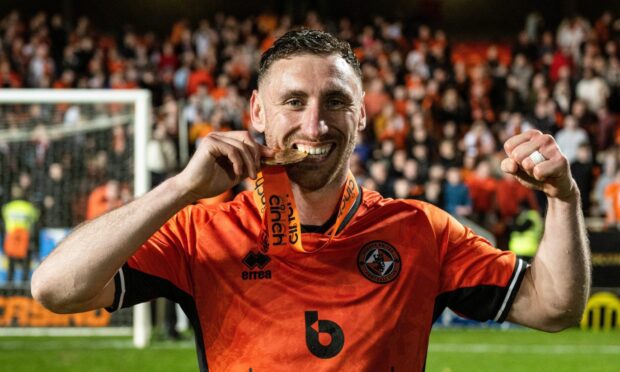
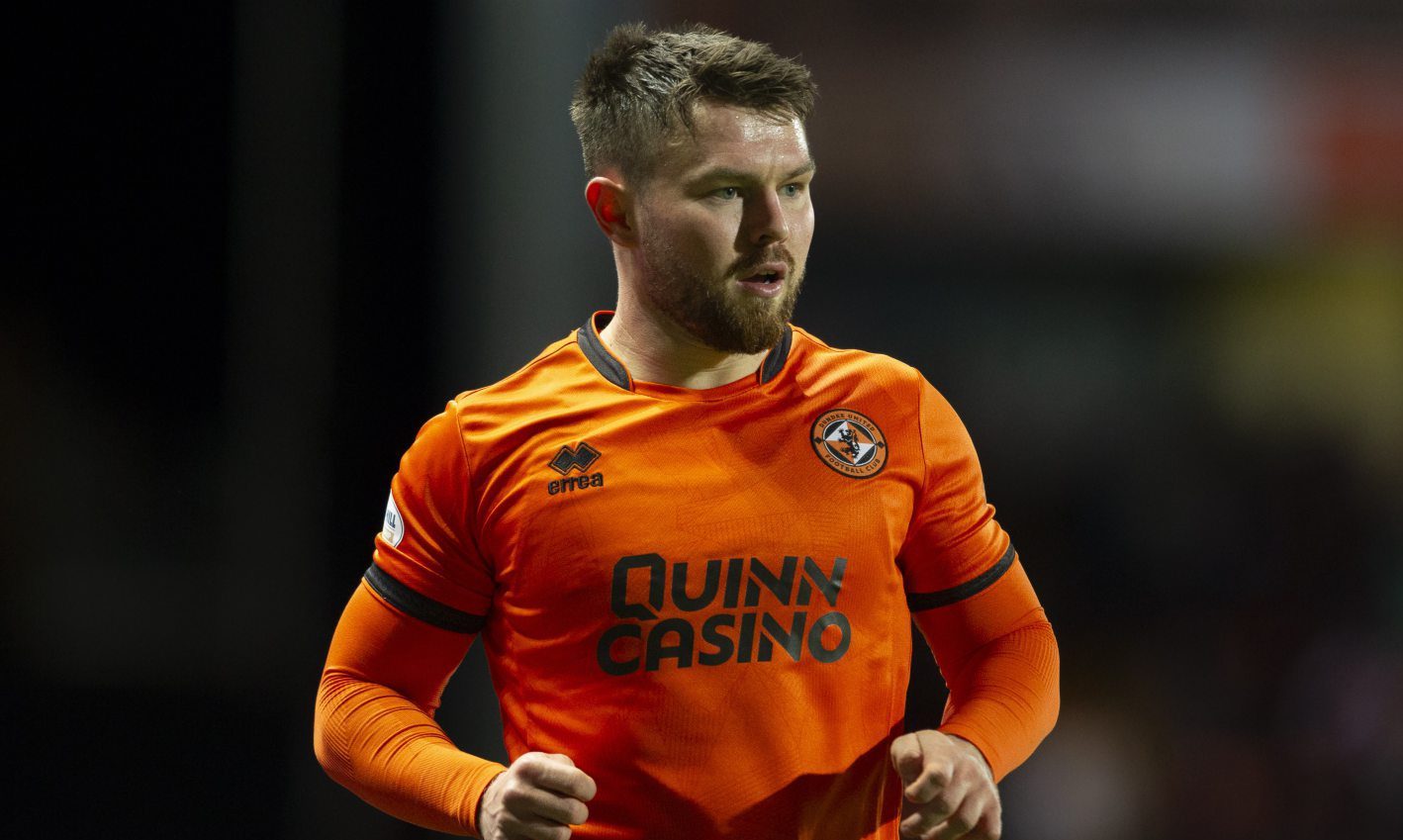
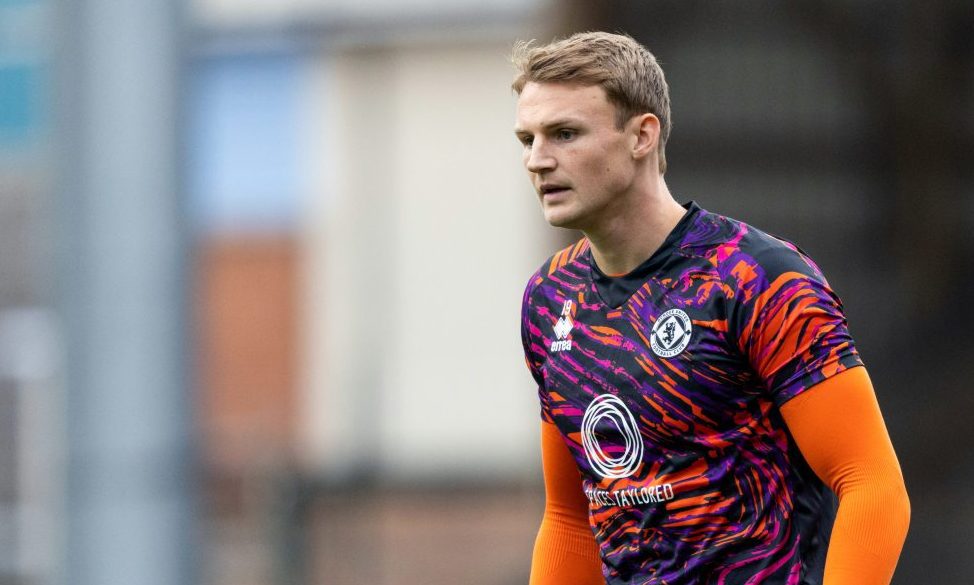

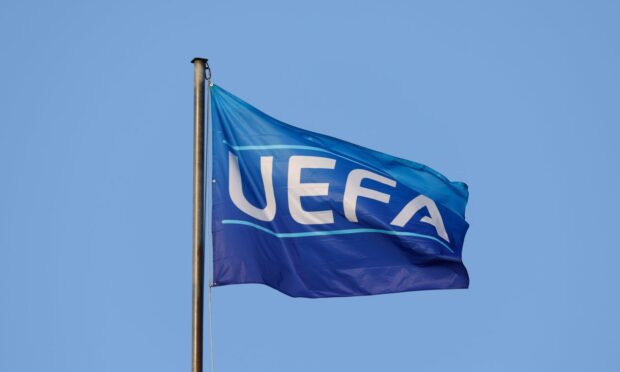
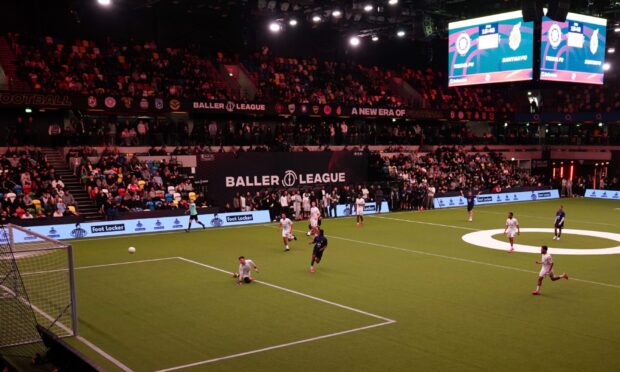

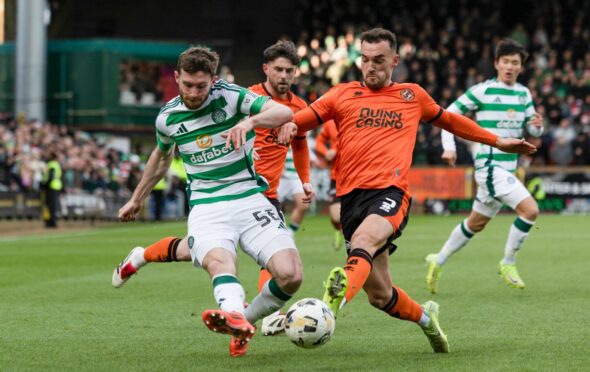
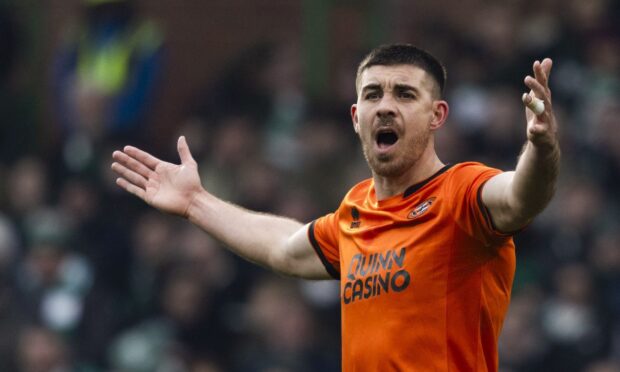
Conversation